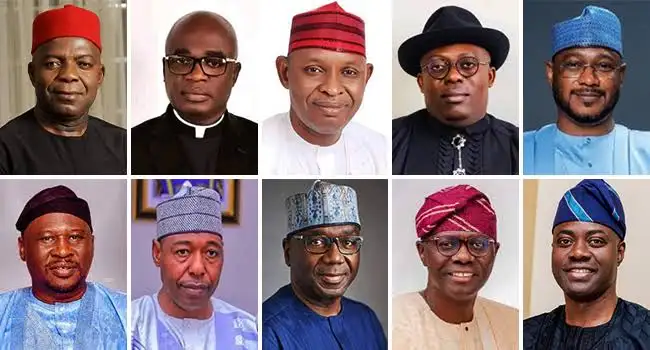The Socio-Economic Rights and Accountability Project (SERAP) has issued a seven-day ultimatum to Nigeria’s 36 state governors, demanding transparency and accountability in the expenditure of ‘security votes.’
The civil society organisation has submitted Freedom of Information (FoI) requests, urging governors to publicly account for all security funds spent by their states since May 29, 2023.
In FoI requests dated June 28, 2025, and signed by SERAP Deputy Director Kolawole Oluwadare, the organisation also pressed the governors to immediately invite the Economic and Financial Crimes Commission (EFCC) and the Independent Corrupt Practices and Other Related Offences Commission (ICPC) for a joint investigation, tracking, and monitoring of these expenditures.
SERAP highlighted the urgency of its demand, citing the recent massacre in Benue State and the pervasive insecurity across numerous states, which it says is exacerbating poverty, hunger, and human rights violations.
READ ALSO: SERAP urges Tinubu to investigate June 12 annulment, push electoral, human rights reforms
The group emphasised that the Nigerian Constitution does not endorse opaque spending of public funds as security votes.
“Despite billions of naira annually allocated as security votes, many governors are demonstrably failing to safeguard the lives and property of their citizens, contrary to constitutional provisions,” SERAP’s requests stated.
The organisation underscored the constitutional obligation of governors to abolish corrupt practices and abuse of office, asserting their fundamental duty to account for how security votes are utilized.
SERAP pointed out that in 2021 alone, state governors and local government chairmen reportedly collected over N375 billion in security votes.
It stressed Nigerians’ right to know how these public funds are being spent to ensure their safety.
While acknowledging the need for operational secrecy in national security, SERAP maintained there is no legal basis to withhold basic information on public spending.
The organisation warned that failure to comply within seven days would lead to ‘appropriate legal actions’ to compel adherence.
SERAP cited a landmark Supreme Court judgment that affirmed the applicability of the Freedom of Information Act to all public records across the Federation, effectively nullifying governors’ previous claims of exemption.
This judgment, SERAP stated, mandates transparency and accountability in the spending of security votes, aiming to foster an honest public discourse on security challenges and governmental responses.
SERAP lamented that years of secrecy and inadequate oversight have fueled large-scale corruption and hindered public accountability for constitutional duties.
The organisation reiterated that security votes should be used strictly for improving state security or returned to the public treasury, condemning any treatment of these funds as personal entitlements.
The FoI requests also referenced the World Bank’s recent classification of Nigeria as an ‘economy in fragile and conflict-affected situations (FCS),’ alongside countries like Afghanistan and Mali.
The bank reportedly noted that insecurity is a significant driver of extreme poverty in Nigeria, contributing to acute food insecurity, and undermining human development due to weak state capacity and conflict-related disruptions.



